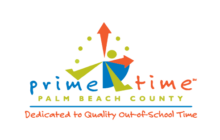9:00 am - 11:00 am
Over the last 5 years, Prime Time has helped the JASE program become a successful afterschool program in Martin County. We are thankful for the variety of trainings offered, yearly actions plans and multiple site visits.
Afterschool ProfessionalMartin County Parks and Recreation
The Power of Circles in OST – VIRTUAL
Do you want to help youth process their emotions so they can better handle situations that arise? Do youth in your program need a way to connect and reflect so they feel like they belong? Circles in the OST environment can help build the relationships and skills youth need to support one another and successfully face challenges. This training will go over the basics and show you, step by step, how to facilitate meaningful circles with youth in your program.
Upon successful completion of this training, the participant will earn 2 clock hours (.2 CEUs) of training.
Training Objectives:
Participants will:
- Define the components of effective circle practices in OST.
- Explain the ways in which circles can be used with youth to meet various needs.
- Develop a plan to facilitate a meaningful circle with youth.
Core Knowledge, Skills, and Competencies Addressed (CKSCs):
Learning Environments and Curriculum
Physical Environment and Activities
Apply – G. Creates environments and experiences to value, affirm, and respect diverse needs, abilities, experiences, and backgrounds.
Relationships and Interactions with Children and Youth
Enhancing Group Experiences
Identify – D. Identifies child/youth abilities and corresponding positive guidance techniques to support successful group experiences.
Apply – C. Plans and guides group activities to teach children and youth cooperation and collaboration.
Youth Engagement Voice and Choice
Skills and Competencies
Apply – A. Encourages youth to express their ideas and feelings support healthy development, meaningful relationships, and program quality
Equity and Inclusion
Inclusive and Accessible Physical and Social Spaces
Apply – A. Creates an inclusive, welcoming, and respectful environment for all.
Primary QIS Scales Addressed:
I. Safe Environment
I-E.: Creating Safe Space
II. Supportive Environment
II-G: Emotion Coaching
III. Interactive Environment
III-K.: Sense of Belonging
III-L.: Fostering Teamwork-
III-M.: Promoting Responsibility and Leadership
III-N.: Cultivating Empathy

